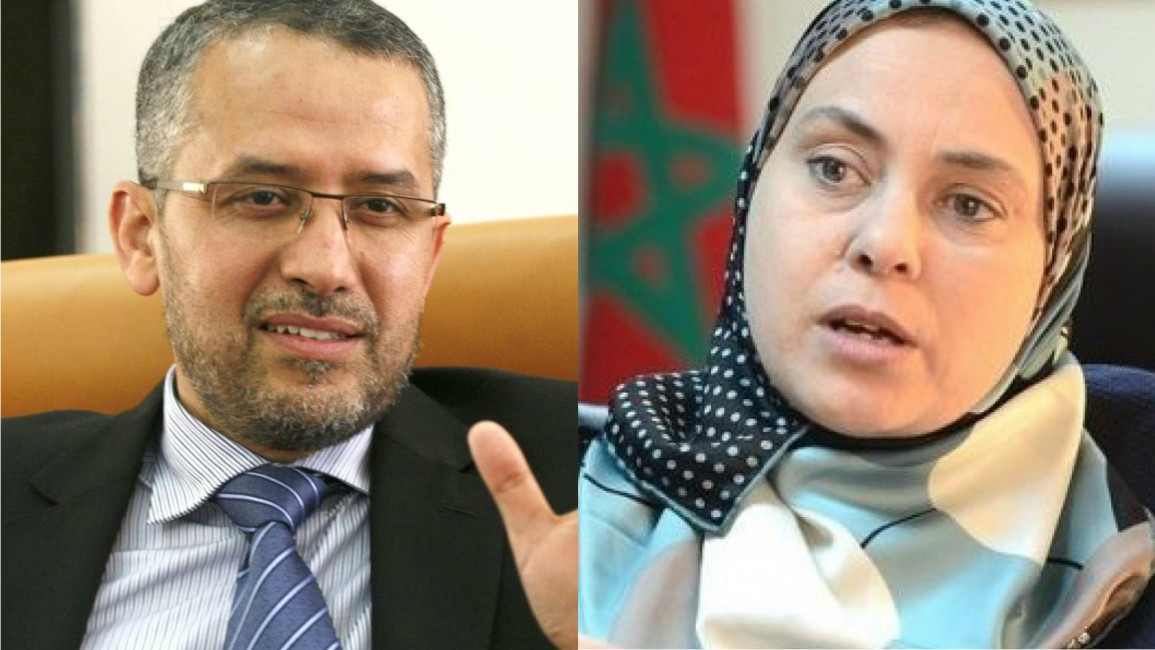
Cupid strikes in the Moroccan cabinet
A love story between two ministers in the Islamist-led Moroccan government has provoked significant debate, and eclipsed important matters affecting the lives of Moroccans, such as plans to increase the price of household gas.
Lahbib Choubani, the minister of relations with parliament and civil society and Soumia Benkhaldoun, the minister delegate to the minister of higher education, were thrust into the limelight after their affair went public.
Both are members of the ruling Islamist Justice and Development Party, and both were married with children. Benkhaldoun has grandchildren.
However, it seems nothing can stop cupid's arrow once it is shot, and despite the two announcing their engagement, the debate regarding their relationship has not cease.
Their defenders, mostly supporters of their party, stress the importance of respecting people's private lives, and invoke Islamic teachings and Moroccan customs that forbid discussing people's personal lives and families.
However, their opponents have accused them of double standards - both are against personal freedoms as stipulated by international treaties and laws, but demand their own personal freedoms in matters of love.
| Nothing can stop cupid's arrow once it is shot. |
Critics argue they are both ministers, and thus public figures whose private lives can be subjected to public scrutiny, despite the Moroccan constitution clearly stating every person has the right to protect his or her private life.
However, this case is not simply about privacy, but touches on the issue of public behaviour in that every person, regardless of position, should respect or at least give appropriate consideration to social norms.
And when the issue relates to public figures, the expectation is that they behave in an exemplary manner.
Additionally, they say, those who enter public life should tacitly acknowledge the loss of a portion of their privacy.
The relationship between public and the private is controversial, and continues to be the subject of much debate, especially in politics. However the case raises a number of questions that are of public interest.
The wives of others
The case has reignited the debate on polygamy, as Choubani is already married, despite the constitution allowing polygamy on the condition that the man obtains the agreement of his first wife or wives.
There are those who believe that the second marriage of a minister to another minister who agreed to become a second wife encourages polygamy in Moroccan society, and this has been criticised by rights groups.
Many on social media have questioned whether the love story will affect the performance of the ministers and the government.
What is certain so far is that the case and its repercussions has affected Morocco's foreign image as a modern society, especially after the legislation of a modern family law around a decade ago.
| Government is not a suitable place for marriage and love, no matter the nobility of emotions. |
The French and Spanish press has extensively reported on the story in addition to publishing articles about the polygamy in the current Moroccan government and the leadership of the Justice and Development Party.
The largest negative impact from this story was on the party, reinforcing its opponents claims that members are driven by their desires rather than minds.
The two ministers should have stood by their love and resigned from government, as it is not a suitable place for marriage and love, no matter the nobility of emotions.
Opinions expressed in this article remain those of the author and do not necessarily reflect the opinions of al-Araby al-Jadeed, its editorial board or staff.
This is an edited translation from our Arabic website.



